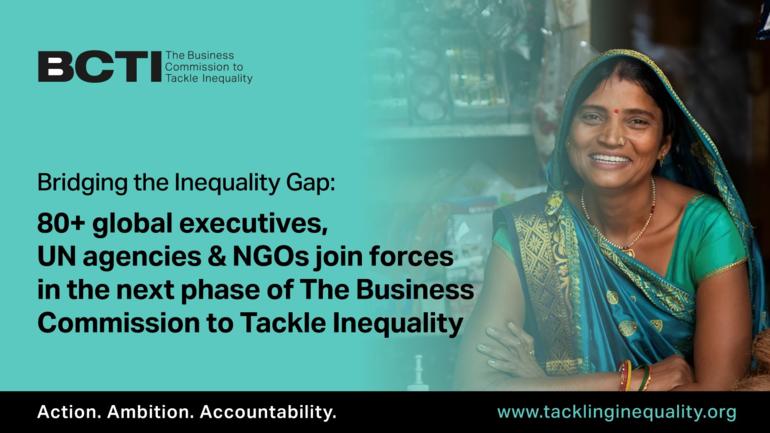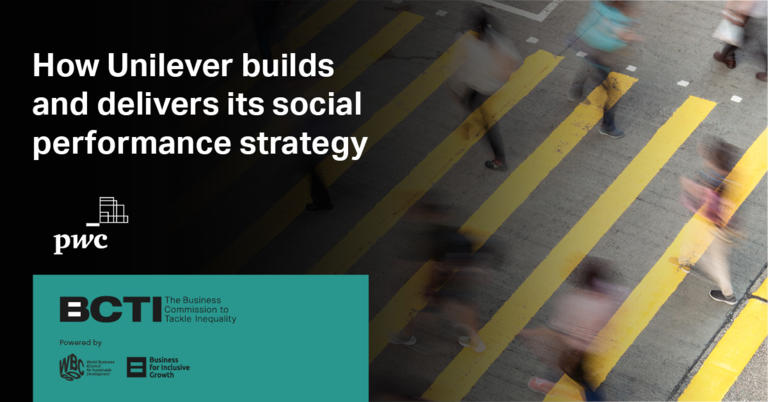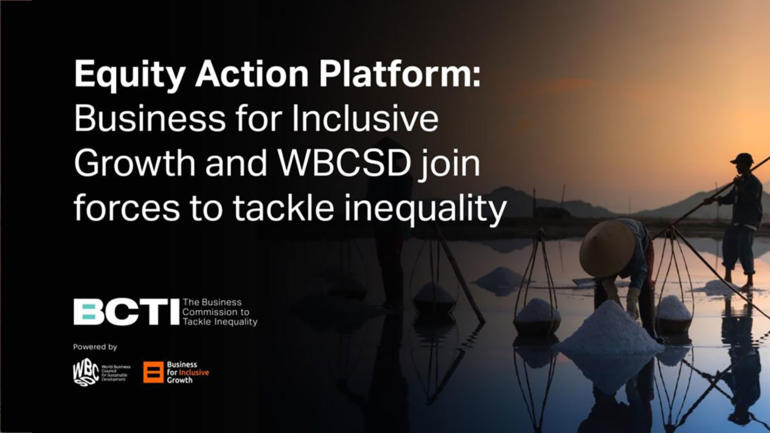There was a time when societal problems were seen as the exclusive responsibility of governments.
But that’s no longer the case.
The scale of challenges facing the world – such as war and refugee crises, pandemics, climate change and social unrest – are so vast that every individual and institution must step up to play its part.
This is especially true for businesses, many of whom now dwarf governments in terms of size. Sixty-nine percent of the world’s largest entities are corporations, which gives them enormous power to drive positive change.
Given such potential, businesses have an opportunity and a responsibility to mitigate the systemic impacts of inequality through collective action. The Business Commission to Tackle Inequality (BCTI) – a cross-sectoral and multi-stakeholder coalition of organizations which puts addressing inequality at the heart of business’s agenda for sustainable growth –emphasizes the critical role businesses can play to tackle these complex challenges.
Things have changed
In the past couple of years, we’ve seen a distinct shift in the roles and the expectations of business. The principles of stakeholder capitalism have gotten traction in the boardroom as business leaders recognize that long-term value creation is achieved through serving the interests of the planet, workforce, customers and communities, as well as shareholders.
According to the Yale School of Management, which has been tracking responses since the start of the war in Ukraine, almost 1000 companies have now cut ties with Russia. And those that didn’t act fast have come under immediate pressure, with Yale, as well as the Association of Corporate Citizenship Professionals (ACCP), naming the laggards.
COVID-19 has caused a massive rethink of companies’ responsibilities to their employees, especially around mental health, burnout and work-life balance. One recent study from Microsoft shows that, since the pandemic, 53 percent of employees are more likely to prioritize health and wellbeing over work. According to a US report, 98 percent of organizations say they plan to offer or expand benefits like wellbeing support and flexible working.
The so-called ‘soft’ skills like compassion, empathy and the ability to listen, are becoming more of a focus for leaders, acknowledging that they must look beyond the bottom line to enable broader personal development and fulfillment. The great resignation shows that employees will vote with their feet if they’re not achieving purpose in their work.
At the same time, climate change is very much at the top of the boardroom agenda, as corporations recognize the risks of global warming and the regulatory and reputational pressures to address this existential threat and report on their efforts.
And disadvantaged members of society are the most likely to suffer from the impact of climate change, as they tend to live in areas that are most vulnerable to extreme weather conditions and have fewer resources to cope with the after-effects. In developed countries, even the transition to green energy exacerbates inequities, as low-income individuals are unable to afford to buy solar panels and other technologies, often don’t have homes with large roof space, and are left exposed to rising prices of conventional fossil fuels.
A pivotal point – and a great opportunity
Businesses have arrived at a crossroads. Take the well-trodden route that merely focuses on financial results, and they perpetuate a world of climate change, social unrest and discontented stakeholders – a road that ultimately leads to their own competitive failure and wider environmental disaster.
Employees, potential recruits, customers, investors and regulators expect – in fact, demand –that corporations embrace ESG (environmental, social and governance) values as part of their strategic mission.
To do so, they should look within their own walls at critical issues like diversity, equity and inclusion, to help ensure that employees have equal treatment, career prospects and pay.
Externally, they should build low-carbon, circular supply chains that respect the human rights of workers and associated communities.
And finally, corporate leaders should recognize their immense power and influence and use this as a force for positive change, to act collectively and turn the tide on inequality and climate change.
Access the original article here.








